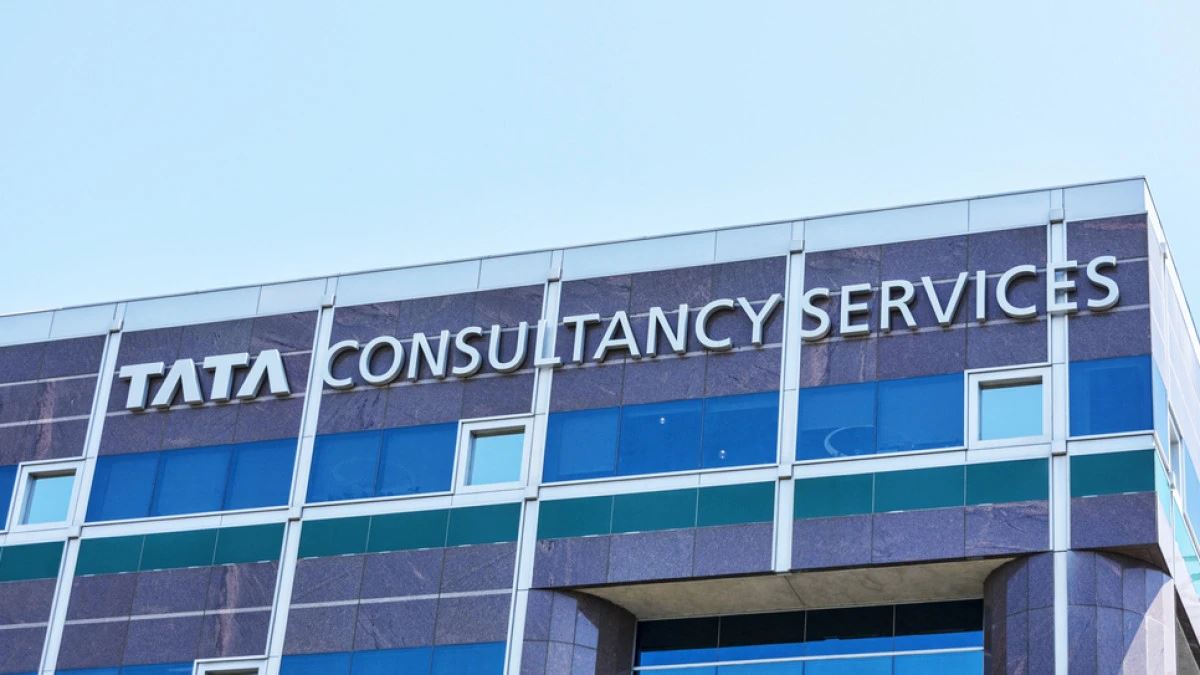A quiet storm has broken over the Indian IT industry, but this one feels different. It’s not the familiar buzz of a new tech startup or the celebratory clang of a multi-billion dollar deal. This is the sound of a foundation cracking. When Tata Consultancy Services (TCS), a name synonymous with stability and ethical corporate governance, announced its largest-ever layoffs, the news was more than a market correction; it was a jolt to the national consciousness. Over 12,000 jobs, or roughly 2% of its global workforce, were on the chopping block. The company cited a “skill mismatch” rather than a result of AI, but the message was clear: the era of lifetime employment, even under the most trusted of banners, was over.
This mass retrenchment, followed by a revelation of delayed salary hikes, is a sharp and painful deviation from the Tata Group’s cherished legacy of employee welfare. It has ignited a firestorm of media scrutiny and social media outrage, forcing a difficult question upon the nation: Does the “Tata” name carry with it a sense of entitlement, a deeply ingrained expectation of job security that no other IT giant could ever hope to shoulder?
A Timeline of Disruption
The events of late July and early August 2025 unfolded with a grim, almost theatrical precision. On July 28, TCS made the announcement that sent shockwaves through the industry. The firm, a beacon of stability for millions, was culling a significant portion of its workforce. The official reason was a “skill mismatch,” a clinical diagnosis for a human problem. It subtly deflects blame from the company by suggesting employees failed to keep up with the pace of change. But analysts and media were quick to interpret the move as a strategic and necessary evil. In a global economy grappling with a macroeconomic slowdown, the rise of powerful Global Capability Centres (GCCs), and the inexorable march of AI, traditional outsourcing giants like TCS are being forced to reinvent themselves. This wasn’t a fire sale; it was a retooling, a painful but calculated move to stay relevant.
Almost immediately there was an intense fallout. Employee unions, such as the National Information Technology Employees Senate (NITES) and the Karnataka IT/ITeS Employees Union, raised a collective cry of alarm. They accused the company of using pressure tactics to coerce resignations, painting a picture of an institution betraying its people. The media amplified these accusations, framing the layoffs not just as an economic decision but as a moral one. The Times of India ran headlines questioning the firm’s ethical conduct, a narrative that would have felt foreign just a few years ago.
The news was compounded in early August with the revelation of delayed salary hikes. For 80% of its workforce, from freshers to mid-level managers, raises were deferred to September 1st. While the hikes themselves (4.5% to 7%) were in line with industry standards, the timing felt like a double-edged sword: a gesture of appreciation overshadowed by the grim reality of mass job cuts. It was a clear signal of cost-cutting measures, a company battening down the hatches for an uncertain future. While TCS engaged with Karnataka labor authorities to address employee complaints, it maintained that no formal complaints had been received, a bureaucratic response that did little to quell the rising tide of public indignation.
The Digital Confessional: A Nation Reacts
The social and employee reaction was a raw and unfiltered look into the anxieties of a generation of IT professionals. On platforms like Reddit, the digital town square for a younger, more cynical workforce, the mood was one of pragmatic resignation and bitter anxiety. Some commentators adopted a fatalistic tone: “I don’t think India would be affected heavily… most will continue,” one user wrote, a sentiment that speaks to the sheer volume of the country’s IT workforce. Another was more direct: “No IT organisation can stay away from this… IT jobs are not secure.” This sentiment highlights a crucial shift: the traditional perception of IT as a guaranteed, high-paying career is giving way to a more realistic, post-globalization view of the industry as volatile and unforgiving.
For many, the outrage wasn’t just about the jobs themselves, but the breaking of an unwritten social contract. Unions demanded a reversal of the decision, and lateral hires, who had just joined the company with the promise of a new start, expressed deep anxiety over their future.
The Tata Legacy of Trust
To understand the depth of this outrage, one must first understand the almost mythical status of the Tata Group in India. For decades, under the visionary leadership of figures like J.R.D. Tata and Ratan Tata, the group’s companies—TCS included—have been celebrated for a unique, almost paternalistic approach to business. The Tata name was a promise of a social contract: a commitment to employee welfare, ethical practices, and, most importantly, job security. This was a company that famously kept all its employees on the payroll during the 2008 financial crisis, a move that earned it immense respect and solidified its reputation as a bastion of corporate security.
TCS, as a flagship company, embodied this philosophy. It was often seen as a place for a stable, decades-long career. It provided upskilling opportunities, transparent policies, and internal mobility, creating an environment where employees felt less like cogs in a machine and more like valued members of a family. This legacy, painstakingly built over generations, created a public trust that transcended simple business metrics. It’s why the company was often compared to a government job in terms of stability, a safe harbor in a sea of corporate uncertainty.
This mass retrenchment, therefore, isn’t just a business decision; it’s a direct contradiction of this long-standing perception. It marks a painful moment of transition, where the values of a legacy organization are being tested and, to some extent, eroded by the harsh realities of the modern global market.
What’s the Weight of a Name
And this brings us to the core question, the very heart of the public’s outrage: Would this controversy have played out differently if TCS were not a “Tata” company? The answer is a resounding yes.
Had this been a Microsoft, an IBM, or any other large, non-Indian IT multinational, the narrative would have been entirely different. It would have been framed as a cold, clinical, and completely expected business decision. We are accustomed to hearing about mass layoffs at these companies. The headlines would have focused on market forces, not on broken trust. The social media outrage would have been less about betrayal and more about the brutal logic of corporate survival. We would have seen it as the natural consequence of working in a hyper-competitive, globalized industry where job security is a privilege, not a right. We would have shaken our heads and moved on.
But this was not Microsoft. This was Tata. And with the Tata name comes a unique set of expectations. For Indian professionals, a job at a Tata company is seen as a rite of passage, a mark of stability and prestige. It represents a promise of a career, not just a contract. This isn’t a sense of entitlement in a negative, lazy way, but rather an expectation rooted in a decades-long corporate history that nurtured its employees like a family. It’s an expectation of a paternalistic employer who will put the welfare of its people above the bottom line, even in tough times.
This expectation is a direct result of the unique social contract the Tata Group forged with the Indian public. Other multinational companies operate on a cold, hard logic that everyone understands from day one. You join them for a great salary and a high-risk, high-reward career. You join Tata, traditionally, for a great salary and the promise of stability.
The TCS layoffs are a watershed moment. They signify the end of an era, a painful coming-of-age for the Indian IT industry. The harsh realities of a competitive global market, driven by AI and macroeconomic shifts, are forcing even the most trusted and ethically-minded corporations to make decisions that contradict their very essence. The outrage we see today is a collective mourning for a cherished ideal: the notion that in a world of fleeting jobs and digital disruption, some companies, at least, would still be a family. The TCS layoffs prove that even family, it seems, has its limits.



















